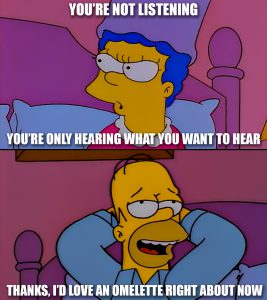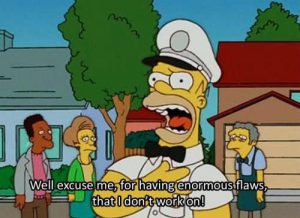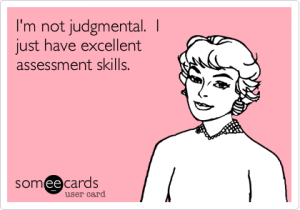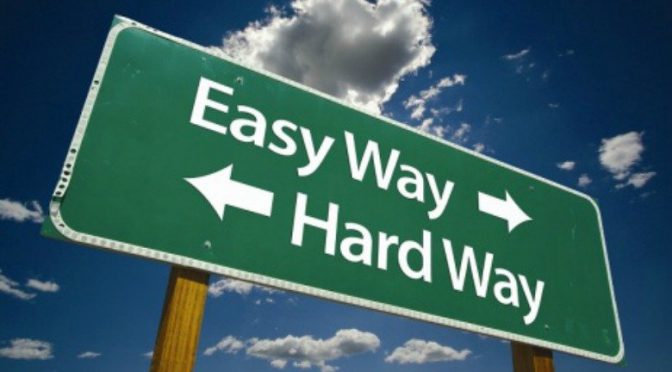As of this writing, it’s early November and the “National Novel Writing Month” has begun again – and if you’re reading this after that’s over, you know how well you did. It’s a time that many people take the opportunity to try their hands as authors – either as a hobby, as their first real attempt, or just an excuse to get back on the saddle again. And, I know from experience it’s also a time when a lot of people decide to try their hand at being a professional too – even if they don’t broadcast that publicly. Hell, I started my first novel in a November (and didn’t finish it for some time later).

It’s an exciting time for some but kind of dreadful for others and generally for similar reasons. There’s an anticipation for the end result that can be both exciting and scary for newcomers and seasoned writers alike. Because, regardless of which side of that spectrum you happen to fall on, the end result will be the time when you can finally put it in front of people and see how they like it. It’s like our own little roller coaster as we experience excitement, fear, and sometimes a little nausea all at once. But, because no one is perfect and tastes aren’t universal, you’re going to run into criticisms.
And that part is going to hurt a little.
It’s unavoidable, but part of the process, and how you deal with it is usually more important than the criticism itself. Someone who can take criticism well and adapt to it will prove to have a long career if they want it. In a field where almost everything you do is up for public debate, you need to be able to hear it out and not let what’s being said consume you. But one of the problems that I often see with creative types, sometimes even within myself, is a tendency to take one of our easy outs – a view that the criticism is something that’s beyond our ability to fix, and thus something we can’t do anything about. It makes things a lot easier if it feels like it’s out of our hands, like a weight has been lifted from our shoulders and we don’t have to worry about it anymore.
But there’s a problem: every easy out we take is a lesson we’ve refused to learn.
Learning To Listen

Though there are several easy outs that a creative person can take when they get some criticism, there are two that are really the most common I’ve seen. The first of these is to say that whatever criticism you receive is a result of some outside force that’s beyond your control, like the critic’s intelligence or belief system. The second is to say that whatever criticism you get is a result of your fundamental inferiority and is beyond your ability to fix. Though these stand in very stark contrast to each other and exact opposites of a scale, they serve the exact same purpose. Whether you believe that the criticism is born out of something you can’t control or born out of something you can’t fix, they both give you permission to not have to address the criticism and simply bail on the process.
The need to blame an outside force in particular is pretty easy to find because it’s so prevalent in creative communities. You’ll often find people saying that critics “didn’t get it” or “aren’t sophisticated enough” for their work. It’s not always untrue, there are always times when a joke or a genre convention flies over someone’s head, but far too often you’ll find someone who believes that any and all criticism is rooted in just not being able to wrap their heads around it. It’s not just damaging to your relationship with your audience, whether they be friends or paying customers, it’s also something of a detriment to your ability to learn. Sometimes, we make mistakes, and if you can’t accept that the mistake was yours and continue to believe that any criticism leveled your direction is the fault of the critic you’ll never actually fix the problems. Eventually, more people are going to notice.

The intelligence of the critic isn’t the only route for such things. If you look around long enough you’ll often find people who want there to be secret motives. Far too often, it’s easier and more comforting to find unspoken reasons behind negative feedback when the feedback is telling us quite openly what they didn’t like. That’s not to say that no one will ever hide something from you, but it’s worth realizing just where the source is. If it’s a friend, they may try to protect your feelings, but if it’s a third party – such as a paid test reader, a friend of a friend, or even a slush-pile editor – it’s much more likely they will be absolutely blunt with you about what their problems are. And, frankly, those friends are probably going to be blunt with you too if they’re really your friends.
In both of these cases, it’s part of us trying to protect ourselves from the fact that their criticism might hold merit. We want to be great at this and we have a hard time realizing that everyone faces these same criticisms – even the professionals. No one has been beyond criticism, and generally the people who become the professionals we can admire are the people who’ve taken these criticisms with a rational eye and acted accordingly. This doesn’t just mean take every criticism and automatically follow it, but it does mean taking time to consider what is actually being said and not assuming that all critics are automatically wrong. We need to be able to listen because, even if we feel like we’re protecting ourselves, we’re the only ones really hurt by ignoring the truth.
Of course, there’s the other side of the coin.
It is just as easy for people to start to take every criticism as a sign that we’re fundamentally incapable of doing this whole writing thing. I’ve known far too many people who’ve completely folded under the criticism because it can hurt so damn much. I get it, too, because I’ve also experienced some of that reaction myself. It’s especially true in rejection letters or professional feedback – whether it be a private reader or a contest judge – where we will see the negative feedback and think about the fact these are all the reasons why it doesn’t work. It’s really easy to lose perspective because from our vantage it’s just a list of our failings.
Why would this rejection letter/contest feedback only list negative traits and only very few positive traits?
Well, because it’s very rare for them to need to explain why they liked something, and it could argue that it would be cruel to list all your good points and leave you wondering why you didn’t make the cut. As much as that sucks, that’s just the nature of the beast. Sometimes, the fact the positive details are missing means that the negative details they brought up were the only drawbacks. Sometimes, the fact the positive details are missing means that the things they brought up overwhelmed the good parts. In either case, we have to understand that we’re not getting the whole picture – just the parts that they felt were useful to us.

And, besides making ourselves miserable, this sort of thinking is often used as a crutch the same way as the other. If we decide we’re incapable of doing it, then what’s the point of trying to resolve the flaws that were highlighted to us? I think this is actually one of the big reasons why so many writers ultimately fail. We decide we’re incapable and stop outright. Sure, there are other forces like luck, timing, and the marketplace – but in the end a lot of us don’t even get far enough to test those. To get that far we have to be able to retain some perspective and do what we can to learn and grow. Though growing isn’t always enough, and we can’t always be sure what’s coming, the fact is that every bit of criticism we take in is a step closer to making it work.
Regardless of whether you’re writing just for fun or are looking to be professional, how we react to these things is important. For those of us looking to do it just for fun, it’s important to take criticism in stride so we maintain healthy friendships. For those of us looking to do it to be professional, it’s important to avoid overreacting to valid criticisms. Recently, if you look around in some circles, poor reaction to criticism has resulted in some professionals losing the very thing they worked so hard to get. We have to be able to get past that hangup to become professionals and we have to get past it to keep that position. Because, sometimes, even if it’s easier to blame someone else…
We’re just fooling ourselves.
(I write novels and dabble in screenplays. Follow me on twitter, the best place for someone to critique me in 280 characters.)







